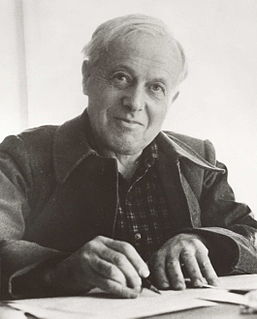A Quote by Alfred Adler
Every individual acts and suffers in accordance with his peculiar teleology, which has all the inevitability of fate, so long as he does not understand it.
Quote Topics
Related Quotes
It is possible that an individual may be successful, largely because he conserves all his powers for individual achievement and does not put any of his energy into the training which will give him the ability to act with others. The individual acts promptly, and we are dazzled by his success while only dimly conscious of the inadequacy of his code.
Life and study have persuaded me of the openness of history. There is no inevitability in history. Thinking about what might have happened, what could have happened, is a necessary element in trying to understand what did happen. And if, as I believe, individual acts of decency and courage make a difference, then they need to be recorded and remembered.
That man is good who does good to others; if he suffers on account of the good he does, he is very good; if he suffers at the hands of those to whom he has done good, then his goodness is so great that it could be enhanced only by greater sufferings; and if he should die at their hands, his virtue can go no further: it is heroic, it is perfect.
There will be no one like us when we are gone, but then there is no one like anyone else, ever. When people die, they cannot be replaced. They leave holes that cannot be filled, for it is the fate - the genetic and neural fate - of every human being to be a unique individual, to find his own path, to live his own life, to die his own death.
All work, the genuine work which we must achieve, is that which is most difficult and painful: the work on ourselves. If we do not freely take upon ourselves this pre-acceptance of the pain and torment, they will be visited upon us in an otherwise necessary individual and universal collapse. Anyone disassociated from his origin and his spiritually sensed task acts against origin. Anyone who acts against it has neither a today nor a tomorrow.
No-one can compel me to be happy in accordance with his conception of the welfare of others, for each may seek his happiness in whatever way he sees fit, so long as he does not infringe upon the freedom of others to pursue a similar end which can be reconciled with the freedom of everyone else within a workable general law ? i.e. he must accord to others the same right as he enjoys himself.





































